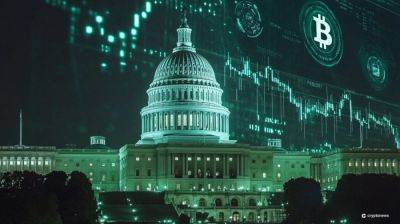Bitcoin Becomes Hot Election Topic as Trump Comes Close to Promising a Strategic National Reserve
Michael Graw is an experienced freelance finance and tech writer, specializing in cryptocurrencies, decentralized finance, and Web 3.0 since 2018. His work has been featured on various financial news...
Owing to the prominence of cryptocurrencies, with Bitcoin being the headline act in mainstream circles, the presence and use of the coins has become a hot topic among American politicians vying for power. Already, a US senator has drafted legislation for a new strategic reserve of Bitcoin, which would be funded, in part, by a revaluation of the Federal Reserve’s gold.
Apparently, 200,000 BTC would be purchased over five years, per Cynthia Lummis’ initial drafting. Seeing an opportunity to curry favor, former President and Republican nominee Donald Trump has leapt at the buzzword. He’s promised major changes in regulatory leadership and committed himself to the crypto community. If elected American President, the anti-crypto crusade, as he called it, would come to an end.
This is, of course, despite the many anti-crypto rulings that came into play during his last term in the Oval Office. In any case, his pledge did stop just short of promising a new Strategic Bitcoin National Reserve. Even so, the potential for one has people wondering just how mainstream Bitcoin and its kin have become, and what such a move would mean for the community and traders.
To say that cryptocurrencies have become mainstream would be something of an overstatement. The knowledge of their existence is mainstream, and to an extent, trading leading coins is also mainstream within the investor community. For their actual use as a form of tender, as hoped for by Satoshi Nakamoto, crypto is exceedingly niche. Still, there is a growing belief that digital
Read more on cryptonews.com





















